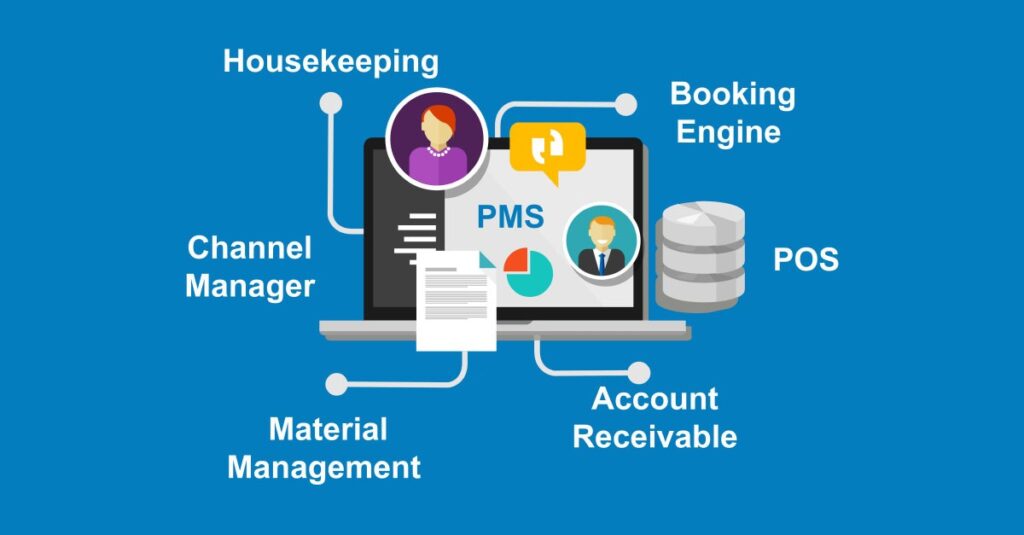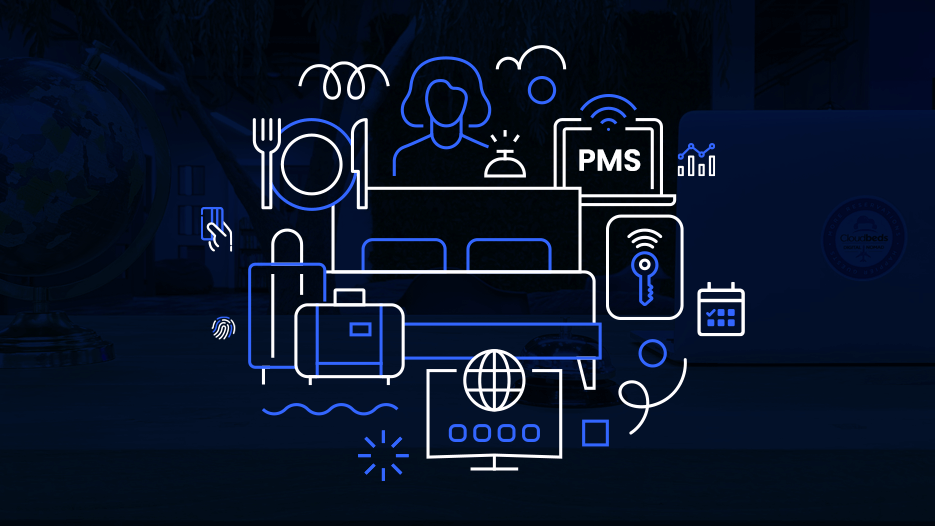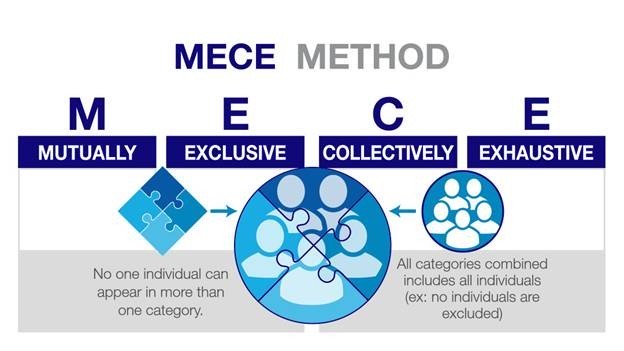What Are The Benefits Of Using PMS Software In The Hospitality Industry
In today’s fast-paced and technology-driven hospitality industry, the effective management of operations and guest experiences is crucial for success. One of the key tools that have revolutionized the way hotels and other accommodation providers operate is Property Management System (PMS) software. PMS software is a comprehensive solution designed to streamline and automate various aspects of hotel management, from reservations and check-ins to billing and reporting. In this blog post, we will explore the numerous benefits of using PMS software in the hospitality industry and how it can significantly enhance efficiency, guest satisfaction, and overall business performance.
As the demands of guests continue to evolve, hotels must adapt and embrace technology solutions that enable them to deliver exceptional experiences. PMS software serves as a central hub, integrating multiple functions and departments within a hotel, allowing for seamless communication and efficient operations. With its user-friendly interfaces and robust features, PMS software empowers hoteliers to optimize workflows, streamline processes, and elevate the guest experience.
Throughout this blog post, we will delve into the specific benefits that PMS software brings to the table. We will explore how it simplifies the reservation process, automates check-ins and check-outs, facilitates efficient communication between hotel departments, and enhances revenue management strategies. Moreover, we will discuss how PMS software provides valuable insights through reporting and analytics, enabling data-driven decision-making that drives business growth and operational excellence.
Whether you own a small boutique hotel or manage a large hotel chain, understanding the benefits of utilizing PMS software is essential in today’s competitive hospitality landscape. From improving operational efficiency to enhancing guest satisfaction, PMS software is a game-changer that empowers hoteliers to stay ahead of the curve and deliver memorable experiences to their guests.
Join us on this exploration of the benefits of using PMS software in the hospitality industry and discover how it can transform your operations, drive revenue, and elevate your hotel’s success. Let’s dive in!

Benefit 1: Communication
Property Management Systems (PMS) play a pivotal role in enhancing communication within hotel management. Effective communication is crucial in the hotel industry, where coordination among various departments and teams is essential for smooth operations and guest satisfaction. Let’s explore how PMS enhances communication in hotel management.
- Centralized Information: PMS serves as a central repository of information, ensuring that all relevant data is easily accessible to the entire hotel team. This eliminates the need for manual sharing of information through paper-based systems or multiple spreadsheets. With a PMS, staff members from different departments can access real-time data, including guest details, room availability, special requests, and service preferences. This centralized information promotes efficient and accurate communication across the organization.
- Real-time Updates: PMS enables real-time updates and synchronization of data. When a guest checks in, updates their reservation, or requests a service, the information is instantly reflected in the system. This ensures that all staff members have access to the latest guest-related information, minimizing miscommunication and ensuring consistent service delivery.
- Integrated Communication Channels: PMS integrates various communication channels, such as internal messaging systems, email, and task management tools, within a single platform. This facilitates seamless and efficient communication among team members. Staff can communicate internally, delegate tasks, and collaborate on guest requests or service-related issues, ensuring smooth operations and prompt resolution of guest needs.
- Guest Communication Management: PMS enables effective communication with guests throughout their stay. Automated guest communication features, such as pre-arrival emails, confirmations, and post-stay surveys, can be set up within the system. This streamlines guest interactions ensures timely communication and enhances the guest experience. Staff can also access guest history and preferences, allowing for personalized communication and anticipating guest needs.
- Mobile Accessibility: Many modern PMS solutions offer mobile accessibility, allowing staff members to access the system from anywhere within the property. With mobile access, staff can receive real-time updates, respond to guest requests promptly, and communicate effectively even while on the move. This enhances the agility and responsiveness of the hotel team.
- Task Management and Alerts: PMS facilitates task management and alerts within the system. Staff members can assign tasks, set priorities, and receive notifications for important activities or deadlines. This helps to streamline operations, ensure timely completion of tasks, and keep everyone informed about their responsibilities.
- Reporting and Analytics: PMS generates detailed reports and analytics on various aspects of hotel operations, including guest satisfaction, revenue, occupancy rates, and more. These reports provide valuable insights that can be shared with relevant team members and stakeholders, fostering transparent communication and enabling data-driven decision-making.
In conclusion, Property Management Systems (PMS) significantly enhance communication within hotel management. By centralizing information, providing real-time updates, integrating communication channels, facilitating guest communication management, offering mobile accessibility, enabling task management and alerts, and providing reporting and analytics, PMS ensures efficient and effective communication among staff members, departments, and with guests. This seamless communication flow promotes collaboration, improves service delivery, and enhances overall operational efficiency in the hotel industry.
Benefit 2: Efficiency
Property Management Systems (PMS) play a crucial role in enhancing efficiency in hotel management. PMS refers to software solutions designed specifically for the hospitality industry to streamline and automate various operational tasks. Let’s explore how PMS enhances efficiency in hotel management.
- Centralized Operations: PMS serves as a centralized hub that integrates various hotel operations, including reservations, front desk, housekeeping, accounting, and more. By consolidating these functions into a single system, PMS eliminates the need for manual processes, reduces paperwork, and minimizes the chances of errors or miscommunication.
- Streamlined Check-in and Check-out: PMS simplifies and accelerates the check-in and check-out processes. It allows guests to pre-check in online, reducing wait times at the front desk. With real-time room availability and guest information, hotel staff can swiftly handle check-ins, allocate rooms, and process payments, resulting in a seamless and efficient guest experience.
- Reservation Management: PMS enables efficient management of reservations. It automates booking processes, tracks availability, and manages room inventory in real-time. This eliminates the risk of overbooking or double-booking, optimizing revenue potential. PMS also facilitates managing reservations across various distribution channels, including online travel agencies (OTAs), hotel websites, and global distribution systems (GDS).
- Housekeeping and Maintenance: PMS streamlines housekeeping and maintenance operations. It provides housekeeping staff with real-time updates on room status, requests, and guest preferences. With automated task assignment and tracking, housekeeping processes become more efficient, ensuring timely room turnovers and guest satisfaction. PMS also enables proactive maintenance management by scheduling preventive maintenance tasks, tracking work orders, and managing equipment inventory.
- Reporting and Analytics: PMS offers robust reporting and analytics capabilities. It generates detailed reports on occupancy rates, revenue, guest preferences, and more. These insights enable data-driven decision-making, allowing hotel managers to identify trends, optimize pricing strategies, and improve operational efficiency. With access to accurate and up-to-date information, hotel management can make informed decisions to maximize profitability.
- Integration with Other Systems: PMS integrates with various third-party systems such as online payment gateways, channel managers, point of sale (POS) systems, and revenue management systems. This seamless integration eliminates manual data entry, reduces duplication, and enhances data accuracy. It also enables efficient revenue management, synchronization of rates across channels, and streamlined financial transactions.
- Guest Relationship Management: PMS enhances guest relationship management through guest profiles and preferences tracking. It allows hotels to personalize guest experiences, offer tailored services, and anticipate guest needs. With a comprehensive view of guest history and preferences, hotel staff can deliver exceptional service, leading to higher guest satisfaction and loyalty.
In conclusion, Property Management Systems (PMS) significantly enhance efficiency in hotel management. From centralized operations and streamlined check-in/check-out processes to reservation management, housekeeping automation, reporting, and guest relationship management, PMS optimizes hotel operations, improves guest experiences, and drives overall operational efficiency. By implementing an advanced PMS, hotels can streamline processes, reduce manual efforts, minimize errors, and focus on delivering exceptional service to their guests.
Benefit 3: Distribution
How can PMSs help hotels to connect with guests through a variety of channels?
Property Management Systems (PMSs) can help hotels connect with guests through multiple channels, fostering effective communication and enhancing the guest experience. Here’s how:
I. Online Booking Channels: PMSs integrate with various online booking channels, such as the hotel’s website, online travel agencies (OTAs), and global distribution systems (GDS). This integration ensures that room availability, rates, and reservations are synchronized across all channels, providing a seamless booking experience for guests.
II. Mobile Apps and Messaging Platforms: Many PMSs offer mobile apps or integrate with messaging platforms, allowing hotels to communicate with guests via their preferred channels. Hotels can send pre-arrival messages, room upgrade offers, or personalized recommendations through messaging apps, creating a direct and convenient line of communication.
III. Email Communication: PMSs enable automated email communication, allowing hotels to send pre-arrival information, booking confirmations, post-stay surveys, and promotional offers. These personalized emails engage guests and keep them connected throughout their journey, enhancing the overall guest experience.
IV. Guest Portals and Self-Service Options: PMSs may offer guest portals or self-service options where guests can manage their reservations, access booking details, request services, or provide feedback. These features empower guests to have greater control over their stay and interact with the hotel at their convenience.
How can PMSs help hotels to reach a wider audience and increase bookings?
PMSs can play a vital role in helping hotels reach a wider audience and increase bookings by leveraging various functionalities and integrations. Here’s how:
I. Channel Management: PMSs with robust channel management capabilities enable hotels to expand their reach by connecting with multiple OTAs and distribution channels. This broader exposure increases the hotel’s visibility to potential guests, attracting a wider audience and driving more bookings.
III. Rate and Inventory Management: PMSs facilitate efficient rate and inventory management across different channels. Hotels can adjust rates dynamically based on market demand, seasons, or special events, ensuring competitiveness and maximizing revenue potential. Real-time inventory updates prevent overbooking or underselling, optimizing occupancy rates.
IV. Online Reputation Management: Some PMSs offer integrations with online reputation management platforms. These integrations enable hotels to monitor and respond to guest reviews and feedback from various online review sites. By actively managing their online reputation, hotels can build trust, enhance credibility, and attract more bookings.
V. Direct Booking Capabilities: PMSs often provide direct booking capabilities through the hotel’s website. These direct booking engines empower hotels to capture direct bookings, eliminating third-party commission fees and increasing revenue. Offering exclusive deals or benefits for direct bookings can incentivize guests to book directly with the hotel.
VI. Analytics and Reporting: PMSs generate insightful analytics and reports on bookings, revenue, occupancy, and guest preferences. These data-driven insights help hotels identify booking trends, target specific customer segments, and optimize marketing strategies to reach a wider audience effectively.
By leveraging the capabilities of PMSs to connect with guests through a variety of channels and reach a wider audience, hotels can enhance guest engagement, increase bookings, and drive revenue growth. The seamless integration of booking channels, personalized communication, self-service options, and data-driven decision-making empowers hotels to effectively connect with potential guests and create memorable experiences that lead to increased bookings and guest loyalty.
Benefit 4: Revenue management
Property Management Systems (PMSs) are instrumental in implementing effective revenue management strategies for hotels. These systems provide a range of functionalities and tools to optimize pricing, inventory management, and distribution. Here are some specific examples of how PMSs can help hotels maximize revenue:
- Demand Forecasting and Pricing Optimization: PMSs enable hotels to analyze historical data, market trends, and demand patterns to forecast future demand accurately. This data-driven forecasting helps hotels make informed decisions about pricing and inventory management. By adjusting rates dynamically based on demand, seasonality, and market conditions, hotels can maximize revenue during high-demand periods and optimize pricing to capture demand during low-demand periods.
- Rate Parity and Channel Management: PMSs with integrated channel management capabilities enable hotels to maintain rate parity across various distribution channels. Rate parity ensures consistent pricing across OTAs, the hotel’s website, and other channels. PMSs facilitate automatic rate updates and inventory synchronization across channels, reducing the risk of rate discrepancies. This ensures a balanced distribution strategy and avoids price undercutting, ultimately maximizing revenue potential.
- Yield Management and Room Inventory Optimization: PMSs help hotels optimize room inventory by providing real-time updates on availability and reservations. Yield management techniques, such as overbooking and room categorization, can be implemented through the PMS. By analyzing demand patterns and historical data, hotels can strategically allocate rooms to maximize occupancy and revenue. PMSs provide the necessary tools to monitor and control room inventory, ensuring optimal utilization.
- Reporting and Analytics: PMSs generate comprehensive reports and analytics on key revenue metrics, including occupancy rates, ADR, RevPAR, and revenue by channel. These reports provide insights into revenue performance, market trends, and guest booking patterns. Hotels can use this data to identify opportunities for revenue optimization, make data-driven decisions, and fine-tune their revenue management strategies accordingly.
- Integration with Revenue Management Systems: Some PMSs integrate with specialized revenue management systems. These integrations enhance revenue management capabilities by providing advanced forecasting, demand analysis, and pricing optimization functionalities. By combining data from the PMS with the advanced tools offered by revenue management systems, hotels can make more accurate pricing decisions, optimize revenue opportunities, and achieve better yield management.
- Dynamic Package and Upselling Management: PMSs enable hotels to create and manage dynamic packages or bundled offers. These packages can include additional services or amenities at a discounted rate, encouraging guests to spend more during their stay. PMSs also facilitate upselling opportunities by suggesting relevant add-ons or room upgrades based on guest preferences and availability. This increases the average guest spend and contributes to overall revenue growth.
- Personalized Pricing and Loyalty Programs: PMSs allow hotels to implement personalized pricing strategies for loyal guests or specific customer segments. Through guest profiles and loyalty program integration, hotels can offer exclusive rates, discounts, or rewards based on guest history and preferences. These personalized pricing strategies enhance guest loyalty, drive repeat bookings, and contribute to long-term revenue growth.
By leveraging the capabilities of PMSs, hotels can implement effective revenue management strategies. From demand forecasting and pricing optimization to rate parity, yield management, reporting, and integrations with revenue management systems, PMSs provide the necessary tools and insights to maximize revenue potential. With data-driven decision-making, hotels can achieve better revenue outcomes, optimize occupancy, and enhance profitability.
Benefit 5: Check-in/out, bookings, and billing
Property Management Systems (PMSs) play a vital role in streamlining the check-in/out process, automating bookings and billing, and reducing errors to improve accuracy. Here’s how PMSs facilitate these functions:
1. Streamlining Check-in/Out Process: PMSs offer several features to streamline the check-in/out process, ensuring a smooth and efficient experience for guests and hotel staff. Here are some ways PMSs help in this regard:
- Guest Pre-Registration: PMSs allow guests to pre-register online before their arrival. This enables them to provide necessary information, preferences, and payment details in advance, reducing check-in time and paperwork.
- Room Allocation: PMSs provide real-time updates on room availability and status, allowing front desk staff to allocate rooms efficiently. The system ensures accurate room assignments, considering guest preferences and specific requirements.
- Automated Check-in/Out: PMSs enable automated check-in and check-out processes through self-service kiosks or mobile apps. Guests can complete the necessary procedures, such as key collection and payment, on their own, reducing queues and minimizing wait times at the front desk.
- Integration with Keycard Systems: PMSs integrate with keycard systems, allowing seamless synchronization between room assignments in the PMS and keycard activation. This eliminates the need for manual coordination, ensuring guests can access their rooms without delays.
- Guest Communication: PMSs enable personalized communication with guests before, during, and after their stay. Automated messages, such as pre-arrival instructions or post-stay surveys, can be sent through the PMS, enhancing guest engagement and satisfaction.
2. Automating Bookings and Billing: PMSs automate the booking and billing processes, eliminating manual tasks and reducing administrative burdens. Here’s how PMSs assist in automating these functions:
- Online Booking Integration: PMSs seamlessly integrate with various online booking channels, including the hotel’s website, OTAs, and GDS. This integration ensures that bookings made through these channels are automatically recorded in the PMS, eliminating the need for manual data entry.
- Real-time Availability and Pricing: PMSs provide real-time updates on room availability, rates, and restrictions across all booking channels. This ensures that guests can make bookings based on accurate information, and hotels can avoid overbooking or underselling.
- Automated Confirmation and Payment: PMSs automate the confirmation process by sending immediate booking confirmations to guests via email. The system also facilitates secure online payment processing, allowing guests to settle their bills conveniently during the booking process.
- Invoicing and Billing Integration: PMSs integrate with accounting systems to streamline the invoicing and billing processes. This enables the automatic generation of invoices, tracking of guest charges, and the seamless transfer of billing information to the accounting department, reducing manual errors and ensuring accuracy.
3. Reducing Errors and Improving Accuracy: PMSs significantly contribute to reducing errors and improving accuracy throughout hotel operations. Here’s how PMSs help achieve this:
- Centralized Database: PMSs serve as a centralized database that stores guest information, reservations, billing details, and other relevant data. This eliminates the need for maintaining multiple spreadsheets or paper records, reducing the risk of errors and ensuring data integrity.
- Integration and Data Synchronization: PMSs integrate with various systems, such as channel managers, keycard systems, accounting software, and POS systems. This integration enables seamless data synchronization, minimizing manual data entry and the chances of discrepancies or duplication.
- Automated Calculations and Reporting: PMSs automate calculations for rates, taxes, discounts, and other charges, ensuring accurate billing and financial reporting. This reduces the potential for human errors in manual calculations and enhances overall accuracy.
- Real-time Updates and Alerts: PMSs provide real-time updates and alerts to hotel staff, ensuring they have access to the latest information regarding reservations, payments, room availability, or guest requests. This real-time visibility minimizes the risk of errors caused by outdated or incorrect information.
- Comprehensive Reporting and Auditing: PMSs generate detailed reports and provide audit trails for transactions, bookings, and financial activities. These reports enable hotel managers to review and analyze data, identify discrepancies or irregularities, and take corrective actions promptly, improving overall accuracy and financial control.
In summary, PMSs streamline the check-in/out process, automate bookings and billing, and reduce errors to improve accuracy in hotel operations. With features such as guest pre-registration, automated check-in/out, online booking integration, real-time availability and pricing updates, integrated invoicing and billing, centralized databases, and comprehensive reporting, PMSs enhance operational efficiency, guest satisfaction, and financial accuracy within the hotel environment.
Benefit 6: Real-time monitoring
Property Management Systems (PMSs) play a vital role in providing real-time access to hotel data, enabling hoteliers to monitor performance and make necessary adjustments. Here’s how PMSs facilitate real-time monitoring and data-driven decision-making:
- Centralized Data Storage: PMSs serve as a centralized repository for hotel data, including guest information, reservations, room availability, rates, billing details, and more. By consolidating data into a single system, PMSs ensure that information is readily accessible and up to date.
- Real-time Updates and Synchronization: PMSs facilitate real-time updates and synchronization of data across various departments and systems within the hotel. This means that any changes or transactions, such as new bookings, room updates, or payments, are immediately reflected in the system, providing the most current information to hoteliers.
- Reporting and Analytics: PMSs generate comprehensive reports and analytics on key performance indicators (KPIs) such as occupancy rates, average daily rate (ADR), revenue per available room (RevPAR), guest satisfaction scores, and more. These reports provide insights into the hotel’s performance in real time, allowing hoteliers to monitor trends, identify areas of improvement, and make data-driven decisions.
- Dashboard and Alert Notifications: PMSs often feature user-friendly dashboards that display real-time data and performance metrics in a visually appealing manner. Hoteliers can easily monitor key metrics and set up customized alerts or notifications to stay informed about critical events or deviations from predefined benchmarks.
- Revenue Management Integration: PMSs integrate with revenue management systems, which utilize real-time data to optimize pricing and revenue strategies. These integrations provide hoteliers with insights into demand patterns, competitor pricing, and market trends, enabling them to adjust rates dynamically and maximize revenue opportunities.
- Staff Collaboration and Communication: PMSs facilitate seamless communication and collaboration among hotel staff members. Real-time access to data allows different departments, such as the front desk, housekeeping, and F&B, to stay updated on guest information, room status, and service requests. This improves operational efficiency, guest satisfaction, and overall performance.
- Mobile Accessibility: Many modern PMSs offer mobile apps or web-based interfaces that allow hoteliers to access real-time data and monitor performance on the go. With mobile accessibility, hoteliers can stay connected and make informed decisions from anywhere within the property or even remotely.
By leveraging real-time access to hotel data provided by PMSs, hoteliers can monitor performance and make adjustments as needed. They can track occupancy rates, revenue, guest feedback, and other metrics to identify trends and patterns. With this information, hoteliers can respond quickly to market changes, adjust pricing strategies, optimize marketing efforts, allocate resources effectively, and enhance the overall guest experience.
Additionally, real-time data empowers hoteliers to proactively address issues or challenges, such as room availability, service requests, or billing discrepancies, in a timely manner. By continuously monitoring performance metrics, hoteliers can make data-driven decisions, implement strategies to drive revenue growth, improve operational efficiency, and ensure high guest satisfaction levels.
Overall, PMSs provide the necessary tools and real-time data access for hoteliers to monitor performance, identify opportunities, and make informed adjustments that drive success in the highly dynamic and competitive hospitality industry.
Conclusion:
In conclusion, Property Management Systems (PMSs) offer a range of benefits that greatly enhance hotel operations and overall performance. By streamlining check-in/out processes, automating bookings and billing, reducing errors, and providing real-time access to data, PMSs empower hoteliers to optimize efficiency, enhance guest experiences, and drive revenue growth.
PMSs serve as centralized hubs, consolidating information and enabling seamless communication among departments. This centralization leads to improved coordination, reduced paperwork, and enhanced accuracy in managing guest reservations, room assignments, and billing. With real-time updates and synchronization, hoteliers can make data-driven decisions, respond promptly to market changes, and optimize revenue management strategies.
The integration of reporting and analytics capabilities within PMSs provides valuable insights into key performance metrics, enabling hoteliers to monitor trends, identify areas for improvement, and fine-tune strategies accordingly. This data-driven approach fosters proactive decision-making and empowers hoteliers to enhance operational efficiency, guest satisfaction, and financial performance.
Furthermore, PMSs facilitate mobile accessibility, allowing hoteliers to stay connected and monitor performance on the go. With the ability to access real-time data and reports, hoteliers can make informed adjustments and address issues promptly, ensuring a seamless guest experience and optimizing revenue potential.
If you’re a hotelier looking to enhance your operations, streamline processes, and drive success, implementing a robust Property Management System (PMS) is a crucial step. Consider exploring the various PMS solutions available in the market and selecting one that aligns with your specific needs and goals.
Investing in a reliable PMS can significantly transform your hotel management by providing real-time access to data, automating critical tasks, reducing errors, and improving communication across departments. The benefits of increased efficiency, enhanced guest experiences, and optimized revenue management are well worth the investment.
Take the leap and embrace the power of a PMS to elevate your hotel operations, stay ahead of the competition, and achieve long-term success in the dynamic hospitality industry. Your guests and your business will reap the rewards of streamlined processes, improved accuracy, and exceptional service.



